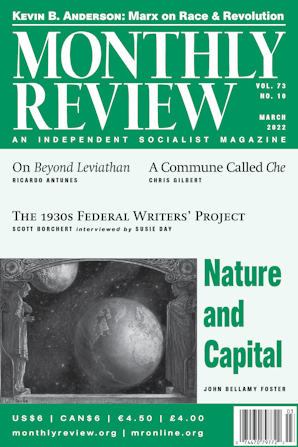Also in this issue
- Nature as a Mode of Accumulation: Capitalism and the Financialization of the Earth
- A Commune Called 'Che': A Socialist Holdout in the Venezuelan Andes
- Revisiting Marx on Race, Capitalism, and Revolution
- What 1930s Radicals Totally Knew: Scott Borchert on the Federal Writers' Project
- The United Fruit Co.
- Confession

